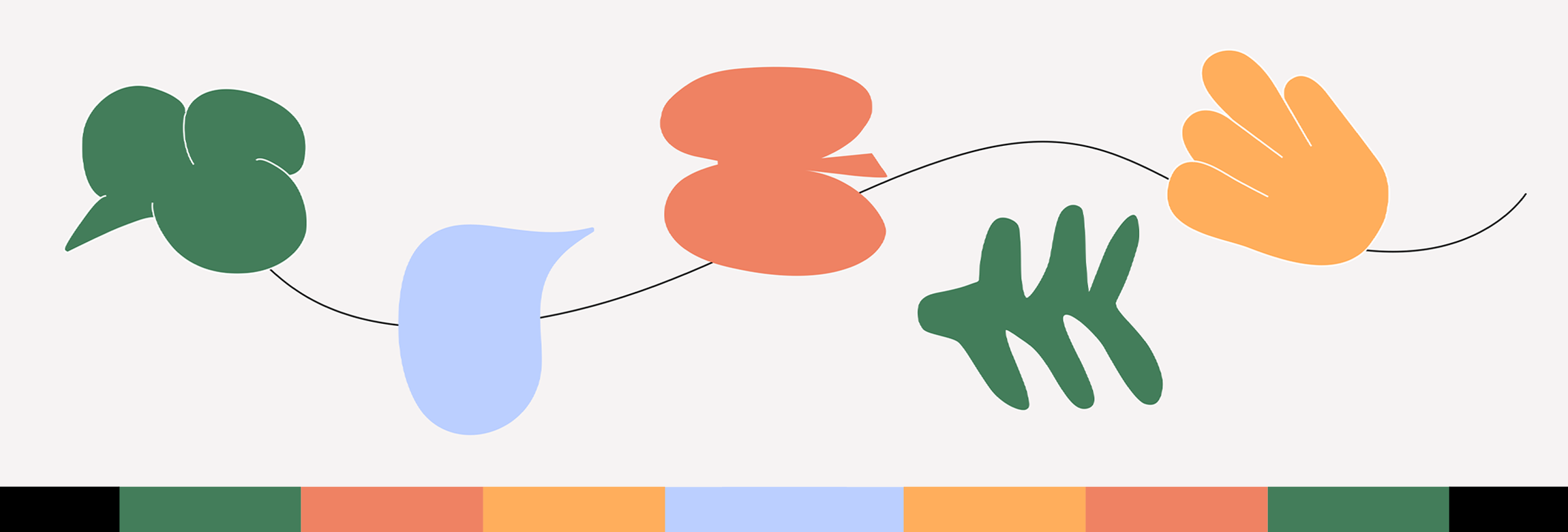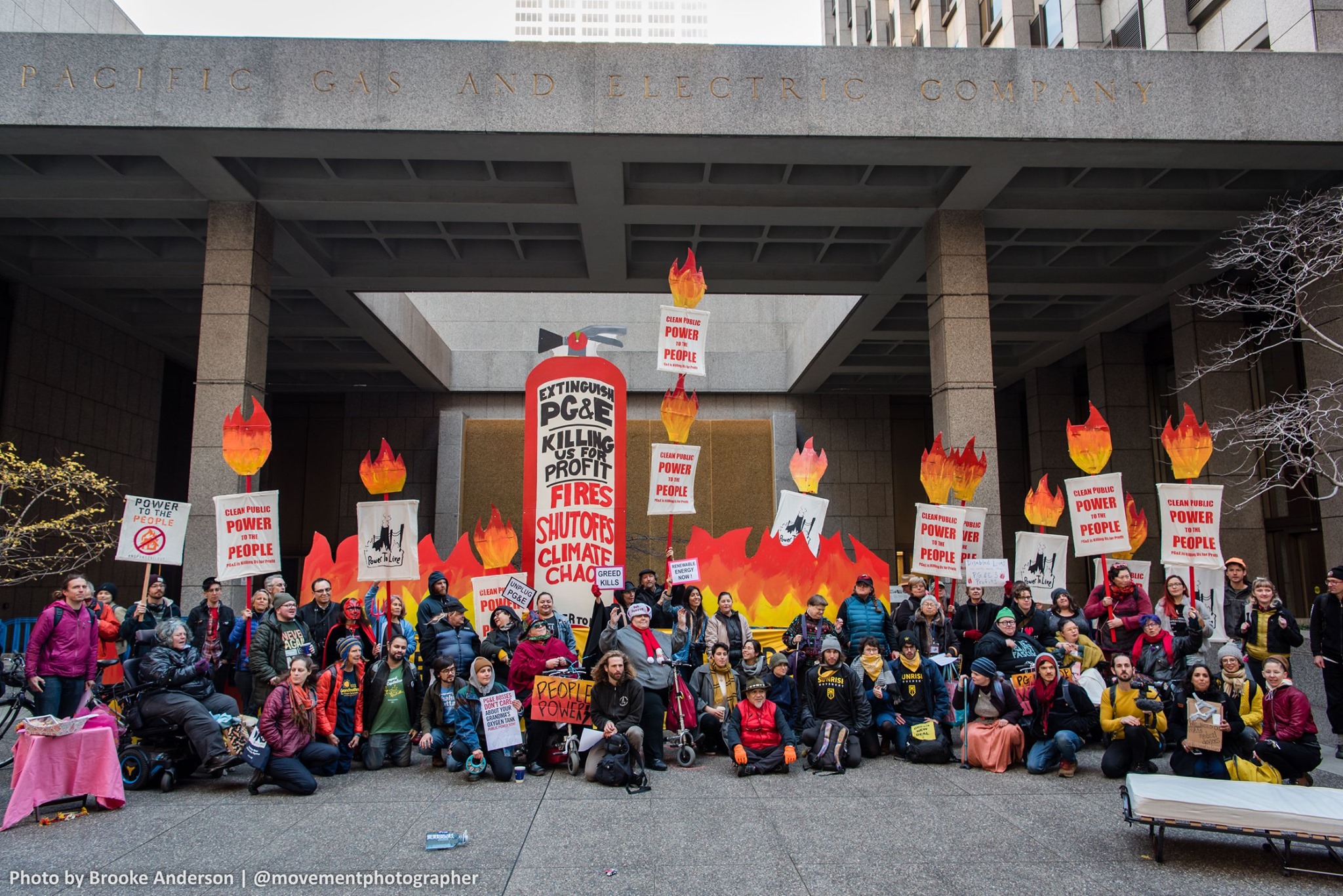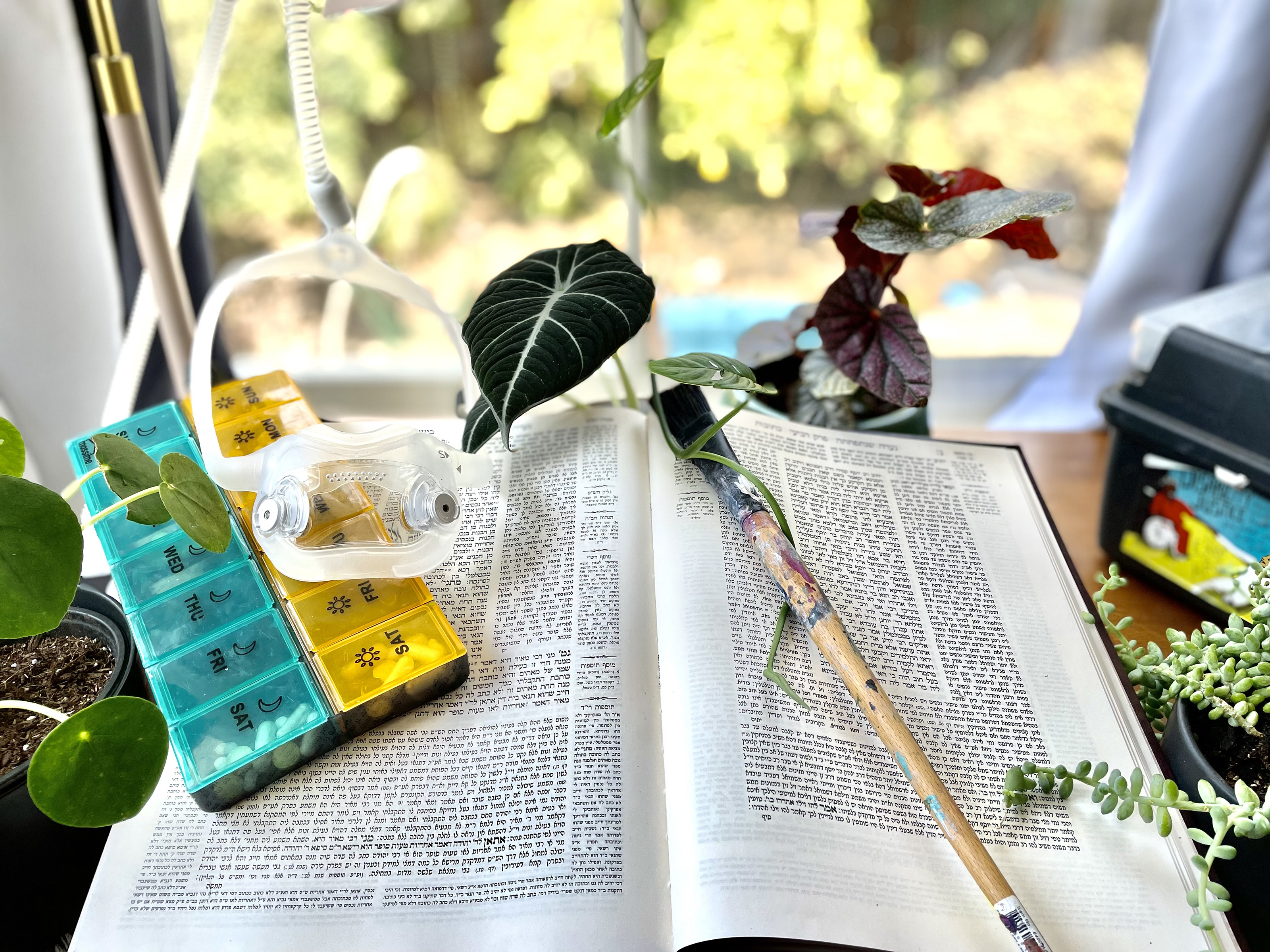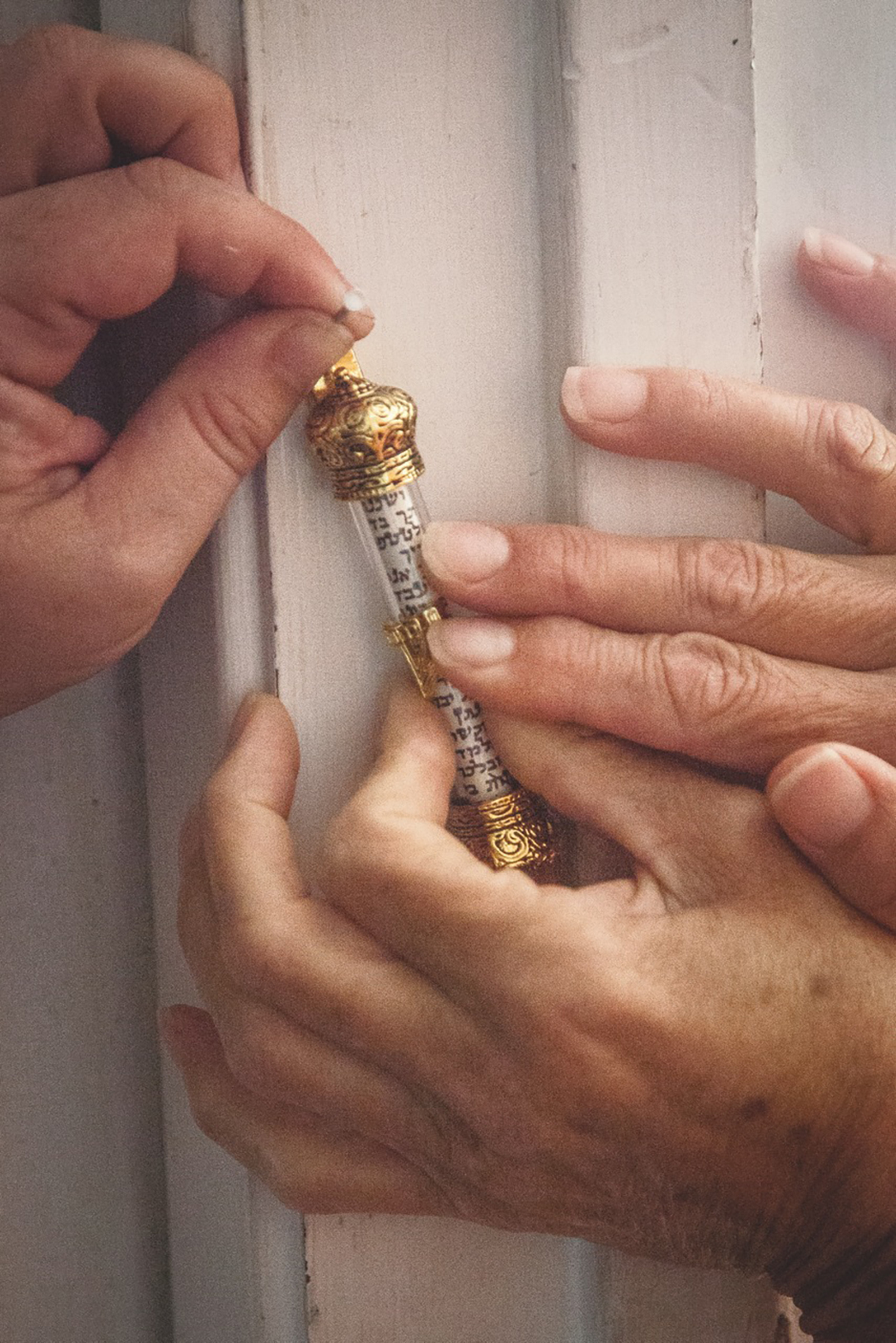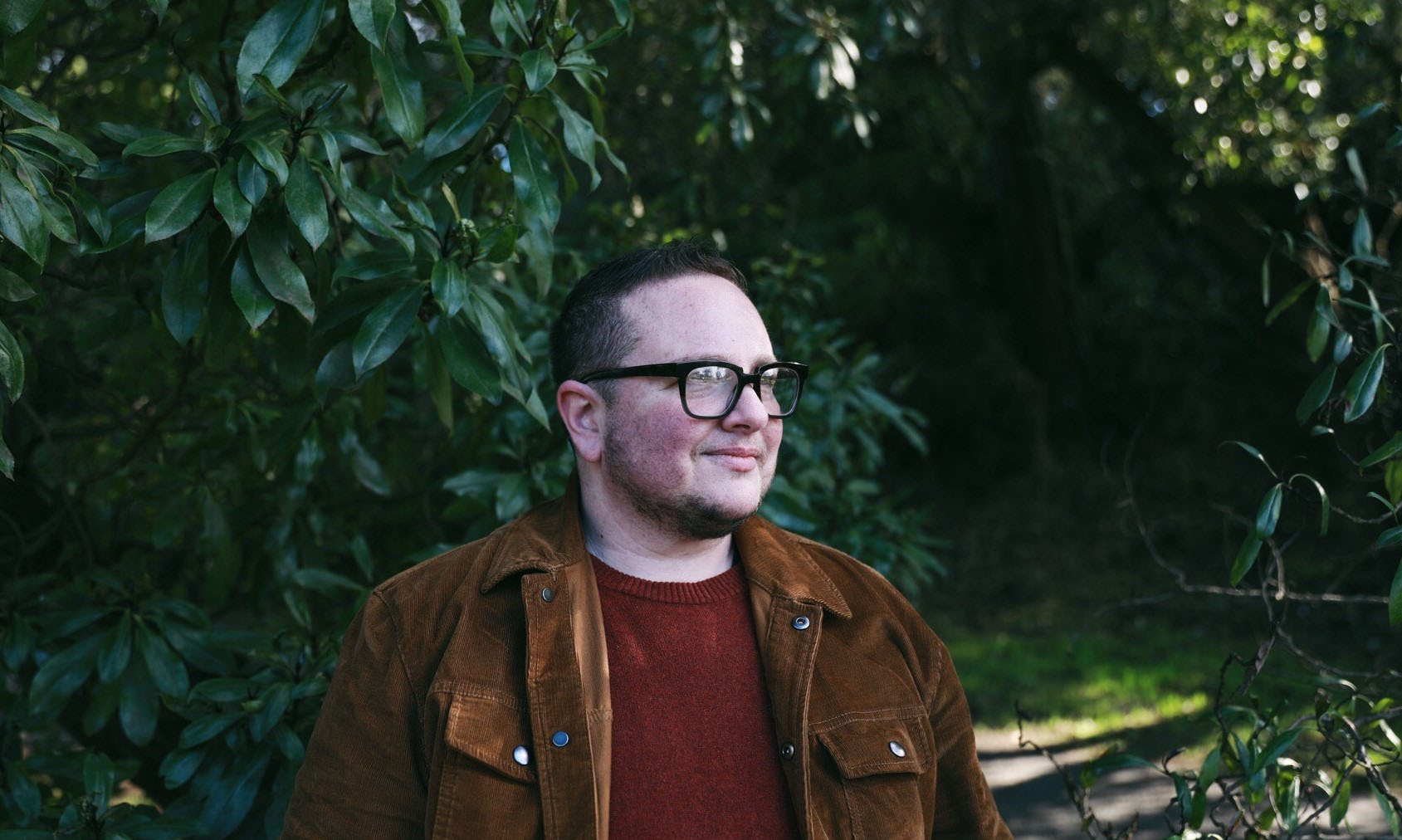
ELLIOT
KUKLA
What role does rest and grieving play in systems change? How does care on an intimate level reflect what we need in order to address global crises?
Photograph by Sarah Deragon
Watch our conversation with Elliot Kukla and read along below.
Video Transcript
Elliot Kukla is a rabbi, writer, painter, disability activist, and transgender advocate. For the past 15 years, he has offered spiritual care to those who are dying or bereaved; his current work is focused on disabled and queer wisdom for adapting to this era of planetary transition.
The absence of marking grief is dehumanizing, and making space for grief is making space for humanity.
The difference between giving and receiving care is very much timing, and that we're all going to come to need care in our life. When care is being offered, it's not a one-way thing ever.
Interdependence
I've spent the last 15 years providing spiritual care to people who are grieving, ill, and dying in hospitals and hospices. I've spent the last year in pandemic caring for people in nursing homes. And so my vision of care comes from, you know, working in a system that's often really lacking in care.
So when I think about care, I think about survival and about the fact that my survival is based on your survival in a core way, and about the fact that as we learned in pandemic in this really visceral way that my exhalation quite literally is your inhalation, and your inhalation is my exhalation.
I'm incredibly grateful for the hundreds of people, thousands probably by now, who have let me be with them in the last days or weeks or hours of their life. It clarifies very strongly that we all come to need care, that independence is very much an illusion. The idea that we could have a life without needing each other, that so many of us think is kind of a goal of being an adult, eventually that ends.
As we come towards the end of life, sooner or later, we come to need care. In a best case scenario, we die very disabled. If we're lucky — if we're very lucky — we have a kind of slow dying process where we lose our capacities and need a lot of care and love and help along the way.
It made it clear to me that we're all getting care all the time. But we don't see that care because we're living in a world that intentionally makes that care invisible. Most of that care is done by poor Black and Brown people that aren't recognized for that labor very explicitly. By we, I am talking about myself as a privileged white person, and speaking to other privileged white people who often don't see the labor of the person who built the road that I drove on to go to the hospital to see the dying person, or the person who picked the food that's on the hospital tray, or even the people who are in the kitchen putting the food together to get the tray there.
I didn't always see all of that labor that I was relying on every moment, and that my life was really just as interdependent and just as surrounded by needs before I was disabled as after. It took being with people at the end of life and being with sick people and seeing more acutely all those needs to recognize the fact that everyone's life is interdependent, and everyone is depending on care.
The fact that we see it more with people who are very sick and disabled at the end of life, or at other points in life, is really about ableism.
We see it because there isn't a system that makes those needs invisible because often those needs aren't met. We don't notice the labor that goes into building a door like we notice the labor that goes into building a ramp because the door is just always there, but someone had to build the door as well.
The Wisdom of Disability Justice
Patty has a quote — Patricia Berne, who's one of the founder of Sins Invalid — which is: "All bodies have strengths and needs" as one of the sort of defining lines of disability justice, which is very helpful to me.
We don't always see the strengths and needs of bodies unless they're sick and disabled. And being with dying people has really helped me with that. That even people taking their last breath have strengths, and even an Olympian running a race has needs.
Disability justice as a framework and also disabled wisdom is one of our keys for survival for everyone. I think a lot of the sort of factors that lead us to become disabled and chronically sick as a people are the same factors that is leading the planet — that has led the planet to become — disabled and sick. I think we're living on a sick and disabled planet, and I don't think the planet is going to be cured immediately, in the same way that our bodies are not.
We've just begun to talk about climate disruption. A lot of that conversation, I feel, is still about how might we stop this. From the framework that I come from, of being around people around the end of life and things like that, what feels familiar is of when you're with someone who has obvious declining illness, and the conversation is about a cure for a chronic illness that isn't gonna be cured, as opposed to how are we going to adapt to what's right in front of us and make life better, or more sustainable, or more whole right now.
Language Around Care
I love the language of “care.” And I know that not all disabled people do. I think that I'm really lucky that I haven't been in a context where ‘care’ has been used to patronize me. Some of that comes to the difference between being invisibly disabled or visibly disabled.
I'm invisibly disabled. I'm constantly up against being seen as not really disabled, and that impacts me economically, emotionally, physically in every different way, and to be seen as someone who deserves care.
I have friends who are visibly disabled, who have the opposite issue, who are constantly, wherever they go — even if they're doing things that they're quite capable of doing — people are rushing in to help them because they ‘look’ disabled. For some of those people, the trope of care can feel really patronizing.
I really like to think of care in the sense of love, you know, unconditional care. And for me, I think it's really connected to this personal transformation that I went through that I was speaking, of going from — in myself — of feeling like every time I get support, I need to earn it, and this sense of like, "Okay, I'm too sick to do things and people are helping me, I'm keeping an inner tabulation in my head of when I'm going to be able to do things back for them," and really trying to come to a place of letting go of that and feeling like everyone deserves unconditional care just by being a person. That there is a kind of love and support based on justice — not based on earning — that we deserve. Not everyone gets it, unfortunately, but that care is something that is owed to us just for being alive, that we don't have to earn.
Rest
The future is one of unconditional love and care, of systems based on care as opposed to profit. The systems we have now are not human. I do believe that if there were ways to care for us as humans that would also care for the planet. The driving humans to burnout and the lack of support for us as we age and get sick is very connected to the lack of support for a living planet and driving a planet to the edge.
As long as we're all exhausted, we're never going to be able to dream how to get there. So the first step is having the time to dream.
And that — just that — feels hard to imagine. How are we going to get to a place where we all really have time to rest and dream? It's not an individual responsibility to make your time to rest, but a collective one that we all have time to rest.
And just to name that for me: that very much comes back to a spiritual value that I come to Judaism in part from the practice of Shabbat which is also rest.
You know, it takes rest to be able to metabolize.
The rate of change that we're going through and a lack of rest is connected to not creating space for sick leave which fueled the pandemic. It's connected to factory farming. It's connected to not letting the land rest. It's also connected to the way we treat workers, and the way we treat disabled and elders as not having value.
As long as we're so exhausted, we are not able to dream of something better.

Vulnerability, Value, & Care
From 2013 to 2017, in that period, I was really too sick to get out of bed for a long time, and had to depend on other people to feed me and shower me and get me to the toilet and get me to the hospital and back. In that time, I really had to grapple with care in a very different way, and grapple with how to feel valuable when I was the one receiving care instead of giving care. It was an extremely painful and vulnerable process for me.
In that time, I had to really call on my clients — some in memory, some in actuality — my clients and disability justice community to teach me that if I didn't accept care, then my work was just charity.
I needed to welcome people to offer me care and do it with an open heart and with a sense that that didn't mean that I was less valuable. Because if I saw myself as less valuable, that meant that on some level I was seeing them as less valuable when I was caring for them. I really had to grapple with the fact that I did see myself as less valuable and what did that mean for my work?
I need to ask for care.
I need to pick up the phone and say "I can't care for my kid today." "I can't come to this big event that I said I would be speaking at." I need to call on all the people I've cared for my whole life to come and — in my head or in my heart — and teach me that receiving care is just as valuable as giving care.

